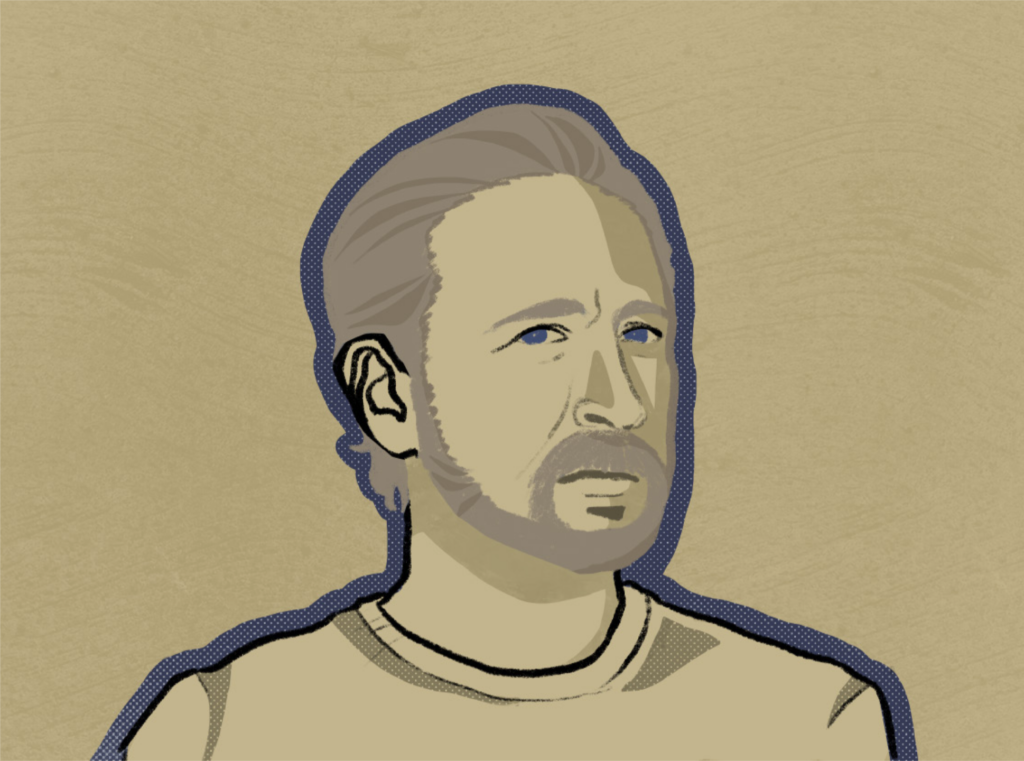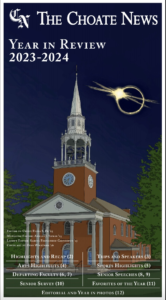
Graphic by Leah Han ’27/The Choate News
By Zaki Shamsi ’26 Opinions Writer
There’s a sweet spot in the world of media in which humor and political commentary intersect: satire. When the nightly news feels like too much and straightforward political analysis feels like homework, satire makes the dense and daunting world of politics more digestible. As I’ve gotten older, I have come to appreciate political satire not just as a form of entertainment, but as a vital component of civic engagement and a healthy democratic society.
Political satire is like one of those funny mirrors one sees at a carnival, reflecting society’s flaws and absurdities while also distorting them for comedic effect. Shows like “The Daily Show” and “Saturday Night Live” (SNL) have been making mockeries out of politicians and policies for decades, crafting laughter from the complexities of legislation and leadership.
An example of political satire is the SNL skit “Trump People’s Court.” In this 2017 sketch, which has over 22 million views on YouTube, actor Alec Baldwin’s impression of Former President Donald Trump P’00 acts as the plaintiff suing judges for challenging his executive orders. The skit humorously captures Trump’s habit of taking matters into his own hands, a theme that’s especially relevant today.
Some critics will argue that satire oversimplifies complex issues or caters to those who share the satirist’s viewpoint, thus reinforcing echo chambers. However, to many, satire is a gateway, not a wall. In a world where politics can sound like a foreign language, satire translates policy into colloquial terms. It empowers people by making them informed, critical thinkers. The accessibility satire provides, especially for young people who might otherwise feel disconnected from the political process today, is crucial in fostering an informed electorate, a cornerstone of any democracy.
Satire also acts as a societal pressure valve. It provides a means for the public to cope with the often disheartening realities of political life. Through humor, we find a way to confront our frustrations and fears about governance and policies.
More importantly, political satire serves as a check on power. By mocking the powerful, satirists remind them (and ourselves) that they are not above scrutiny. In regimes where freedom of speech is stifled, satire often bubbles up as subversive art, challenging authority and sparking debate. Even in democracies, it keeps leaders from becoming too detached, puncturing their egos with wit.
Take, for example, George Orwell’s Animal Farm: a famous piece of satire that uses a seemingly simple story about farm animals to critique the rise of totalitarianism. Orwell’s use of allegory illuminates the dangers of unchecked power and the betrayal of revolutionary ideals, serving as both a cautionary tale and a sharp critique of political hypocrisy. By using animals to stand in for political figures, Orwell highlights the absurdities of power struggles in a way that resonates with audiences both young and old.
It’s true that satire isn’t perfect. Poorly made political satire can sometimes trivialize politics and promote a narrower point of view. But when wielded thoughtfully, it can illuminate truths that traditional reporting might gloss over. In a world saturated with information, where bias and unreliable news confuse our understanding of matters, satire serves as a form of clarity.
I cherish political satire because it serves a greater purpose than just pure entertainment; it educates, critiques, and provides a unique perspective on politics. It makes us laugh, it makes us think, and most importantly, it encourages us to question. In a world teeming with unchallenged power and unchecked truths, satire is not just helpful; it is vital. Political satire keeps our democracy vibrant, critical, and delightfully bold, establishing its role as something worth celebrating.




